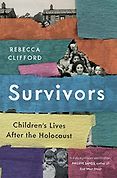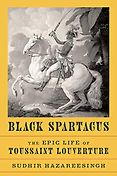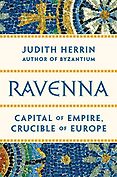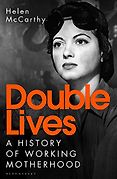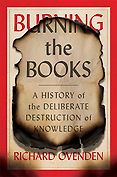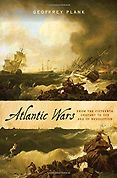There are clear guidelines as to how the Wolfson History prize is selected, but beyond those, is there anything particular that unifies the books that made the 2021 shortlist, or that you were particularly looking for in making your choices?
Well, one consideration is what doesn’t unify them, frankly. What was delightful about this list, as with all our recent lists, is the sheer variety of good history around. The cards really fall down by themselves; it’s not that we are deliberately saying that we must have a medieval item, we must have a modern item. It’s just that in the range of books we had—and I think it was something like 180 this time—there were first-class books all over the place. That’s good for the Wolfson Prize. And it’s good for history; it shows the whole range of the discipline is in an extremely healthy state.
Let’s turn to the books. First on the list is Survivors: Children’s Lives after the Holocaust by Rebecca Clifford. Tell us about this one.
Its title gives the book away. It’s an investigation, looking at a set of particular children who went through the Holocaust experience in concentration camps, and somehow came out the other side. It seems a very straightforward and simple idea to do that.
Frankly, when I approached the book, I thought, ‘Oh, no, here’s another Holocaust book, another concentration camp book.’ But I was completely won over because of the original angle, which is listening to these children, whose very early experiences were formed in a bewilderingly irrational and hostile world, and yet, who lived for decades afterwards, became adults, and could now reflect on their experience. It’s an extraordinarily clever thing to do to get these voices.
“What was delightful about this list, as with all our recent lists, is the sheer variety of good history around”
It raises all the problems of oral history, and actually seizes on them and says, ‘This is what these people remember. Let’s think about how they’ve adapted these stories in order to avoid insanity or breakdown or sheer bitterness. But listen to the resourcefulness that these children had and the memory they present of that.’ That’s what captivated me and, I think, my fellow judges about this book.
Is there a huge diversity in how they remember or think about their experience?
There are, of course, diversities, and they are as diverse as the ways in which human beings manage to cope with atrocity. But a common theme does emerge. There is a very longstanding myth that people didn’t talk about the Holocaust after the Second World War for a very long time. And the memories of these children show that they did. Reflection has been different over the accumulating decades, but it’s been constant.
Let’s move on to the next of the books that made the 2021 Wolfson History Prize shortlist, Black Spartacus: The Epic Life of Toussaint L’Ouverture by Sudhir Hazareesingh. There have been a number of biographies of Toussaint, the ex-slave who led the Haitian Revolution. What’s new about this one?
I think he brings to it a very accomplished sense of a transatlantic world in which you’ve really got to take seriously all the parts of that world. This is a biography that manages to span a world because its subject spanned a world. Toussaint has been dealt with at length before. But there is new material here. There’s a deep understanding of what late colonial Saint-Domingue was like, and how it became Haiti.
Get the weekly Five Books newsletter
There is a person in the middle of it who’s quite difficult to get hold of. And that’s partly the nature of the records, he’s someone who began life in an enslaved culture. But it’s partly that mythmaking happened during his lifetime. He made myths about himself. But also he has been the subject of myths because he is so deeply connected with the founding of a particular place. It’s fascinating that he is now honoured in the Panthéon in Paris, when the French actually destroyed him.
One of the themes underlying the book is the way in which the French Revolution turned on itself. We’ve all known that since Charles Dickens, if not before. But here is a man who was given his opportunity by the collapse of the old regime in France, and yet, in the end, became the victim of the very revolution of which he was a part.
Does Hazareesingh cover Toussaint’s post-death life?
It’s there throughout the book. The book’s divided into four parts. And the last part is called ‘The leader and his myths’, which leads you on to what happened next. And the story of Haiti, of course, is enormously mixed. It has needed heroes because it’s got plenty of villains.
Is he still a hero in Haiti now?
Yes, although this book is not hagiography at all. It’s very easy to look for a great liberation hero. But this book shows a deeply flawed man who clearly didn’t make the lives of those who became free, all that much freer. He wanted hard work. There’s a certain ‘Animal Farm-ness’ about the story. And yet, what an achievement it was for this little island to stand up to one of the great powers of 18th century Europe and create the first predominantly Black-run republic in the world. It’s extraordinary.
Let’s move on to another imperial story, Ravenna: Capital of Empire, Crucible of Europe by Judith Herrin. What story does this book tell?
This is just a delight. In a sense, it’s quite an easy task writing a glittering book about Ravenna, because if you go there, you see these relics of an astonishing culture. But Judith Herrin is absolutely the master of Byzantine and late Roman imperial history. She is someone who knows the whole context—it’s not just a book about a marshland town in Northern Italy.
“All of these six books are beautifully produced”
It’s the story of the paradox of how this marshy place became the centre of the world for a while and became the hinge between Eastern and Western civilization while they were still connected. It was a bridge place. It gets to how Ravenna as a marshy and not very picturesque place was an essential part of the story. It was a place you could defend and it was a place with water which took you to so many other places. Judith knows the archive, and it’s extremely rich and unusual, with an unusual cache of papyri for a Western European place—the sort of thing you expect in Egypt actually survives in the town archives in Ravenna. You get really intimate glimpses of ordinary domestic life in Ravenna at the same time as you’re looking at the fate of imperial dynasties, and seeing horizons that take you as far as Northern Europe and Western Asia.
When was the demise of Ravenna as the capital of the Roman Empire?
Power pulled apart from Ravenna, leaving it in the middle. So the eastern, Byzantine Empire shrank so that Ravenna was on the edge, because new powers were arriving in the west. To start with, some of these new rulers made Ravenna their capital, but then they created other capitals far to the west, so the town gradually shrunk away. You could say the story is one of anti-climax, if you like, leaving us with this astonishing legacy of really dramatic buildings stranded in a small, damp Italian town.
Next of the books on the 2021 Wolfson shortlist is Double Lives: a History of Working Motherhood by Helen McCarthy. I think this one is focused entirely on the UK. Is that right?
Yes, it is. In that sense, I suppose, the canvas is the smallest of all our canvases. It’s a hugely impressive look at how women have managed to manage families, and manage work over this whole period. You get a sense of the unsung heroism and the fact that to begin with, work and motherhood was not a combination that at least men approved of. Often, women didn’t approve of it either.
To begin with, it’s the story of people whom society doesn’t really want to exist. And yet, by the end of the story, it’s become one of the norms of our society. So it’s intriguing, it’s substantial and it’s original. It’s a very carefully bounded subject, and what is nice about that is that it shows the complete turnaround on the subject, from working women as problems or victims to being the norm. There’s a really strong sign-off conclusion, which takes quite a nice swipe at some male historians. I won’t name names.
When does the story start?
It starts in the late 19th century, and goes into the 20th. It’s a century story within a particular country.
And does she use oral history or is it all archive-based?
Inevitably, it’s both because if you didn’t use oral history, you’d be missing out on so much. But it manages to cover the whole range of sources you might look at. So, newspapers, official archives, private reminiscences and letters, as well as oral history. It’s a nice balance.
Next of the shortlisted books for 2021 is Burning the Books: The History of Knowledge Under Attack by Richard Ovenden, who is the Librarian at the Bodleian Libraries here in Oxford.
Well, the delight of this is, firstly, it’s by someone who isn’t actually in what you might call a formal academic historian job. Librarians can often be treated rather as second class citizens by historians because they’re the people who often seem to be stopping you getting the books while you’re drumming your fingers on the desk, waiting for them to arrive. But what Richard does is to take the experience of being a librarian, and the most senior sort of librarian you can get, and use that as part of the fabric of the book. And he’s constantly, unashamedly, delightedly referring to one particular library, Bodley’s library in Oxford, and the book is full of delightful illustrations of Bodley.
But that’s against the background of the theme, which could be so depressing and in many parts of the book is depressing—destroying books. There is a slight consolation about the picture, that the process of destruction has been so long, going right back to the Sumerians. It’s not a book that’s simply about some of the awful things that happened in the 20th century. It’s showing the constant impulse among the powerful to destroy stories that are inconvenient to them, but also a constant impulse, maliciously, to destroy the memory and identity of those who you’re fighting against.
Some of the most horrible stories really are 20th century. There’s a really depressing chapter about the university library of Leuven which has been destroyed twice in the 20th century. It was a calculated atrocity in the First World War by German soldiers. They deliberately set fire to it. And then the same thing happened again during the Blitzkrieg in 1940 in the Second World War. This time the Germans were a bit embarrassed and tried to claim that the British had filled the library with gasoline, which happened to be hit by bombs—not convincing. That library has been destroyed twice, but restored twice. There is a superb library again in Leuven.
“There’s a theme all through this of heroism, and it’s the unheroic heroism of librarians who quietly fight—librarians have to be quiet all the time—against the destruction”
Another story this book tells is the horrific, calculated destruction of the National Library in Sarajevo during the Bosnian War. And it’s told in all its horror. Again, there’s a story of patient, heroic rebuilding, against very considerable political odds and against forces which didn’t want to see that library restored. There’s a theme all through this of heroism, and it’s the unheroic heroism of librarians who quietly fight—librarians have to be quiet all the time—against the destruction. And there’s a very touching chapter on librarians fighting back against the Nazis destroying Jewish libraries. So the book ends on a positive note, and it’s just full of wit and personal experience.
Excellent. It sounds like a must-read.
They’re all must-reads!
Next up is Atlantic Wars: From the 15th Century to the Age of Revolution by Jeffrey Plank. Why does this stand out as one of the best history books of the year and a candidate for the 2021 Wolfson Prize?
This is a book which, you might say, has been written before, because I’ve read world histories of this long period, even as an undergraduate. But there’s a freshness and an excitement about the way that Jeffrey Plank knows the world. There is a boundary to his subject, which is the Atlantic Ocean. But that’s a pretty big boundary. His period goes right back to the Vikings and he manages to show how wars that happened on one side of the Atlantic can affect the other side. There is the obvious triangular trade of the slave trade, but the book is not just dominated by that. It’s looking at so many other wars, which from the 15th century were becoming world wars. And that’s perhaps the most distinctive thing about the Atlantic, that it introduced us to the ‘world war’ in a way that other oceans haven’t. And that the transformations of power that have occurred across that ocean have been greater in their impact on the world, so far, than any others.
Five Books interviews are expensive to produce. If you're enjoying this interview, please support us by donating a small amount.
It’s the way in which he’s managed to integrate themes across the book with a constant progress through the centuries that is really clever. It’s compellingly written, it’s clearly written. That’s not always the case with books covering such a wide area. There’s a terrible feeling you get in some such books of, ‘Meanwhile back in Cape Town…’ but you don’t get that here. You constantly feel that he’s on top of a particular scenario or a scene, which he’s going to take you through. So it’s an exciting read, a compelling read for newcomers and for those who’ve seen the same sort of thing happen before.
I think we’re done. Thanks for running through all these books on the 2021 shortlist.
One final general observation. All of these six books are beautifully produced. Physically they are a pleasure to read. I think that one has to remember that’s why books survive. We just like handling them. It’s why the Kindle, although it’s good for reading Agatha Christie late at night, will never replace a book, which looks like one of these books and feels like one of these books.
Part of our best books of 2021 series.
Five Books aims to keep its book recommendations and interviews up to date. If you are the interviewee and would like to update your choice of books (or even just what you say about them) please email us at [email protected]
